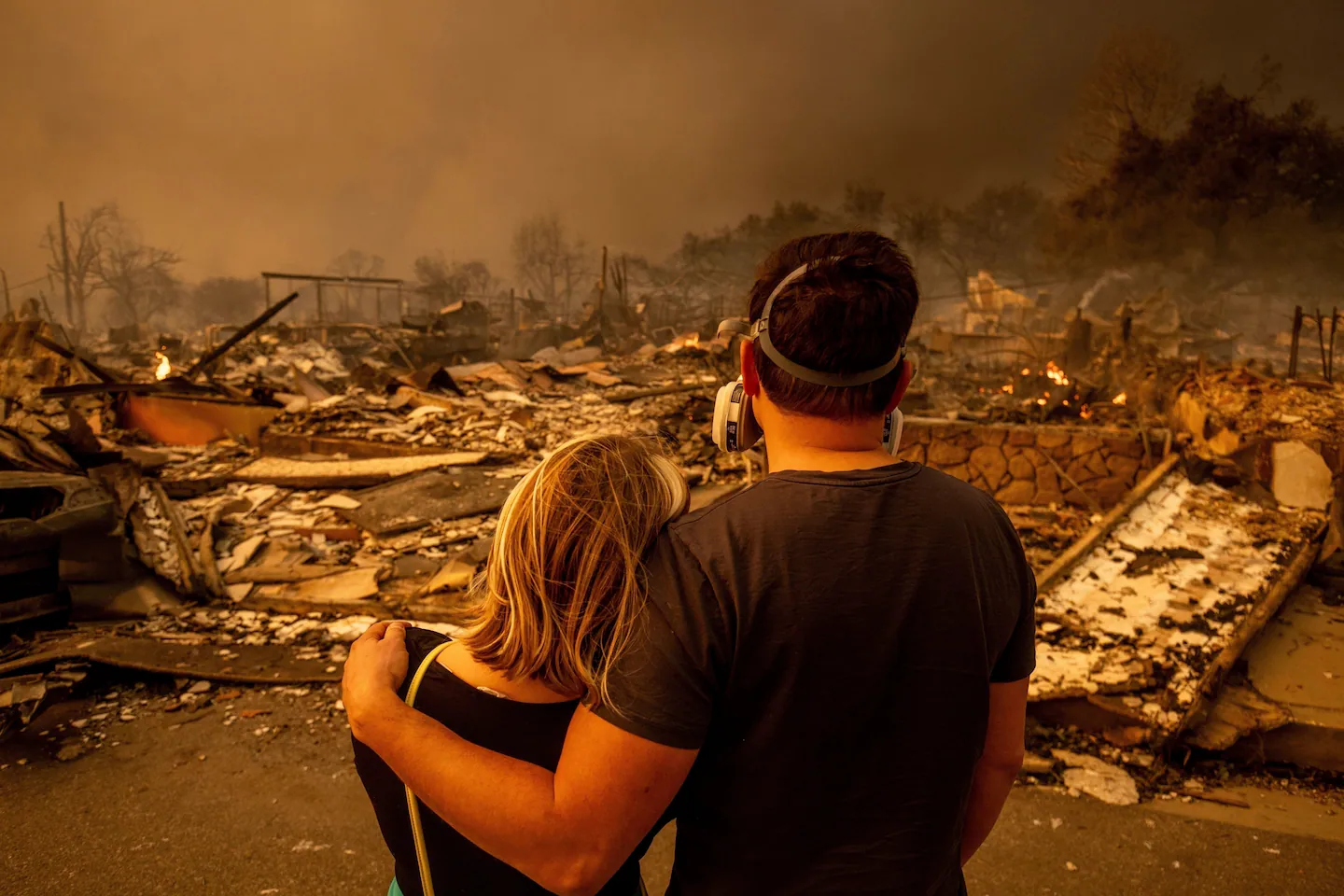Copyright The Boston Globe

The company on Wednesday launched its program to compensate victims for rebuilding costs, lost rental income, physical injuries, and other economic damages. Altadena residents are also eligible for other payouts for “non-economic losses,” such as pain and suffering and emotional distress, depending on their circumstances. Each adult resident of a house that burned down, for instance, is eligible to receive $115,000, and each child is eligible for $75,000. A surviving spouse of someone who died in the fire is eligible for $2 million. Survivors have until Nov. 30, 2026, to decide whether to take the utility up on its offer — and forfeit the right to sue — or to hold out for a legal settlement that could be larger but take years to be resolved. It is a calculation that more Californians could face in the future, as climate change causes utility-sparked wildfires to burn hotter and more quickly out of control. For each family, the equation is different. “There have been a lot of people, like lawyers, who are like, ‘I’m going to help you take Edison for everything you can get, like, let’s drag them through the mud,’” said Lauren Randolph, 40, whose home was destroyed in the blaze. “But there’s just so many things to consider, once this is in its final form: Do we take this to get the money sooner? Or do we wait to try to get more? But how much more, in theory, would we actually get, and is that actually meaningful and worth it?” Randolph and her husband bought their house in West Altadena in 2018, while she was pregnant with her older daughter, and they poured some $150,000 and countless hours into renovating it. Then, on the evening of Jan. 7, they debated for hours whether to leave, although they hadn’t been ordered to evacuate. They eventually went to Randolph’s mother’s house. When the couple returned, only their side gate was left standing. They only recognized it because they had painted it in rainbow colors for their daughter’s 5th birthday. In late September, Southern California Edison hosted community meetings online and in Altadena to gather feedback on its plans. On a Monday night, fire survivors who had been scattered across the region packed into a park gymnasium to hear from company representatives and voice their concerns. Many older survivors brought their adult children or other relatives. Under the plan, victims would be paid according to the level of damage their home had sustained — destroyed, partially destroyed, or damaged by smoke. Survivors could pick from two options: a fast pay option, where they would receive an offer within 90 days of submitting their claim, but with a less detailed review, or a slower option, where they would have to wait for a deeper examination of their losses that could take up to nine months. A fast pay offer would not be reduced by insurance claims, but a detailed review offer would be offset by insurance coverage. Every offer for someone represented by a lawyer would include an extra 10 percent to help cover attorney’s fees. Utility officials emphasized that the program was voluntary. Survivors could file claims and assess their offer, with no obligation to take it. People attending the meeting peppered company representatives with questions, which were transcribed in marker on giant sheets of paper: What about a collection of sports memorabilia that was lost? Would West Altadena residents be paid more because of the lack of warning about the fire? What if family members disagreed about whether they wanted to accept the settlement or continue with a lawsuit? The company didn’t have immediate answers. Some of the survivors said later that they were wary about giving too many details of their cases to the utility; their lawyers had warned them that any information they provided at the meetings could be used against them. On Wednesday, Southern California Edison released the final details of the program and opened the claims process. Pedro J. Pizarro, the president and CEO of Southern California Edison’s parent company, Edison International, said that changes to the initial proposal had been made in response to feedback, including expanding the number of people who could apply for the program and eliminating some documentation requirements. The total number of eligible parties, which includes households and businesses, is about 18,000, he said. Company executives have said that the compensation program is not an admission of guilt, and they have not been held liable in court for the fire. Still, some lawyers and advocates for survivors said that they saw the program as a disingenuous attempt by Southern California Edison to reduce its liability. They said the company would rather boost profits for its executives and shareholders than spend money to mitigate the risk of its equipment starting fires in the first place. And the size of the compensation offers has signaled to some lawyers that the company knows it could be forced to pay much more in court. “In almost every case, it’s pennies on the dollar of what we likely — though there’s not certainty — we’ll be able to recover otherwise,” said Kipp Mueller, a lawyer who is representing fire victims. Zella Knight, whose family left Mississippi for West Altadena in the Jim Crow era, when she was a young child, said she feared that no amount of compensation would preserve a once thriving Black community whose vulnerable elders were displaced by the fire. Many of those people, she said, may not be able to afford to wait for a possible larger payout down the line, unlike wealthier recent arrivals. Knight, 62, said her intellectually disabled brother had continued living in their childhood home after their parents died. The house was destroyed in the fire, disrupting his routines and care. He died in August. Now, she and her other siblings are deciding whether to sell the property. “We have lost our extended family, we’ve lost our comfort zones, we’ve lost those mechanisms that build upon generational wealth,” she said. “Nothing can really compensate for that.” But, she said, the settlements could be a start.



